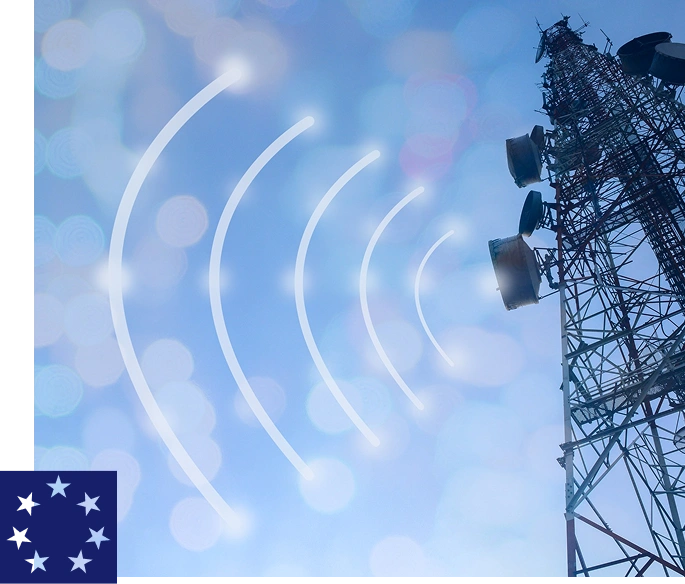Technical Capabilities
Technical Capabilities
AMTS Spectrum Features
- Frequency Bands: 217–218 MHz uplink / 219–220 MHz downlink
- Channel Bandwidths: 500 kHz paired (up to 1 MHz total per market)
- Power: Up to 1 kW effective radiated power (ERP) permitted
- Propagation: Excellent long-range and non-line-of-sight performance
- License Term: 10-year terms, renewable indefinitely without additional auctions

Secure Wireless for Industrial Connectivity
Ideal Use Cases

Utility Field Area Network (FAN)
220 MHz offers excellent range and terrain penetration, making it well-suited for Field Area Networks consisting of remote devices such as smart meter collection points, reclosers, and capacitor banks.
SCADA Connectivity for Critical Infrastructure
The reliability and reach of licensed 220 MHz spectrum make it an effective choice for SCADA systems. It supports low-latency, secure communications with substations, pump stations, and remote-control points across electric, water, and gas networks.
Mobile Voice and Operations Support
Ideal for dispatch and mobile voice communications, the 220 MHz band supports digital Land Mobile Radio (LMR) systems (e.g., DMR, P25) used by line crews, maintenance teams, and emergency responders. It enables wide-area coverage with fewer sites compared to higher frequencies.
Pipeline and Utility Corridor Monitoring
Linear infrastructure like oil and gas pipelines benefit from the long reach of the 220 MHz band. The spectrum supports remote monitoring of pressure, flow, and cathodic protection systems with high reliability across extended corridors.
Rail and Transit System Communications
With its ability to cover long distances and penetrate terrain, 220 MHz is well-suited for railway and transit applications. It supports centralized train control, signal system backhaul, and field crew coordination in both urban and rural corridors.
Wide-Area Sensor and Monitoring Networks
220 MHz is effective for environmental or infrastructure monitoring where sensors are widely dispersed. Use cases include flood detection, wildfire monitoring, and structural health sensing in areas where cellular coverage is limited or unavailable.








